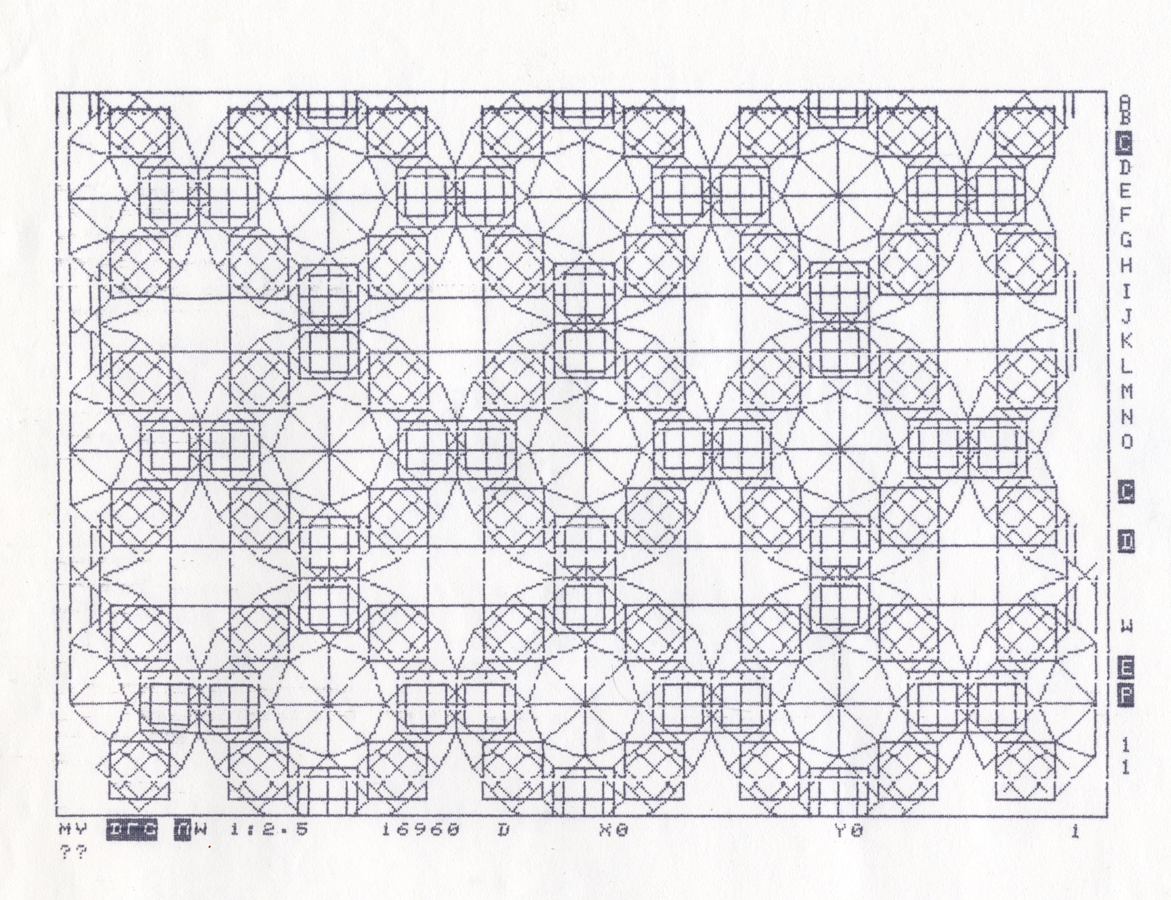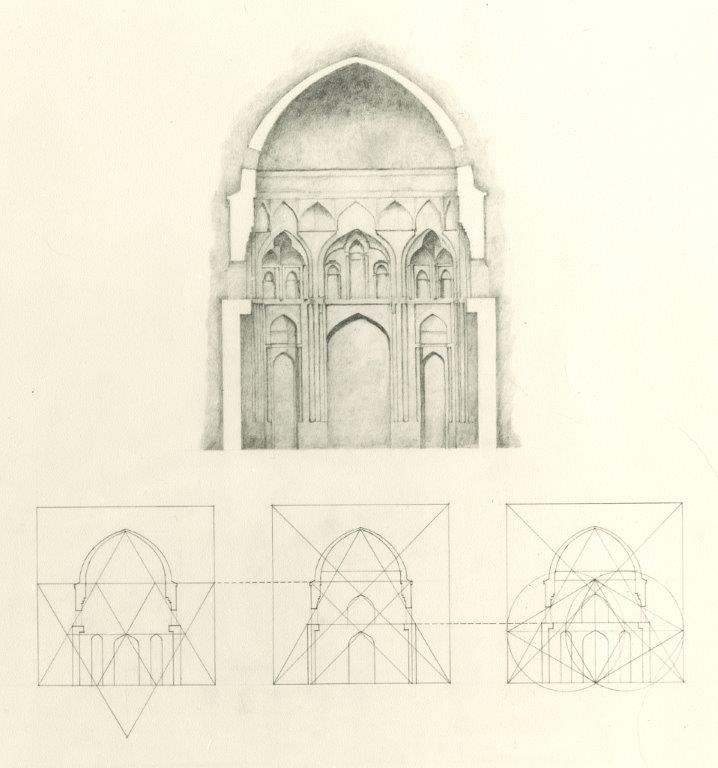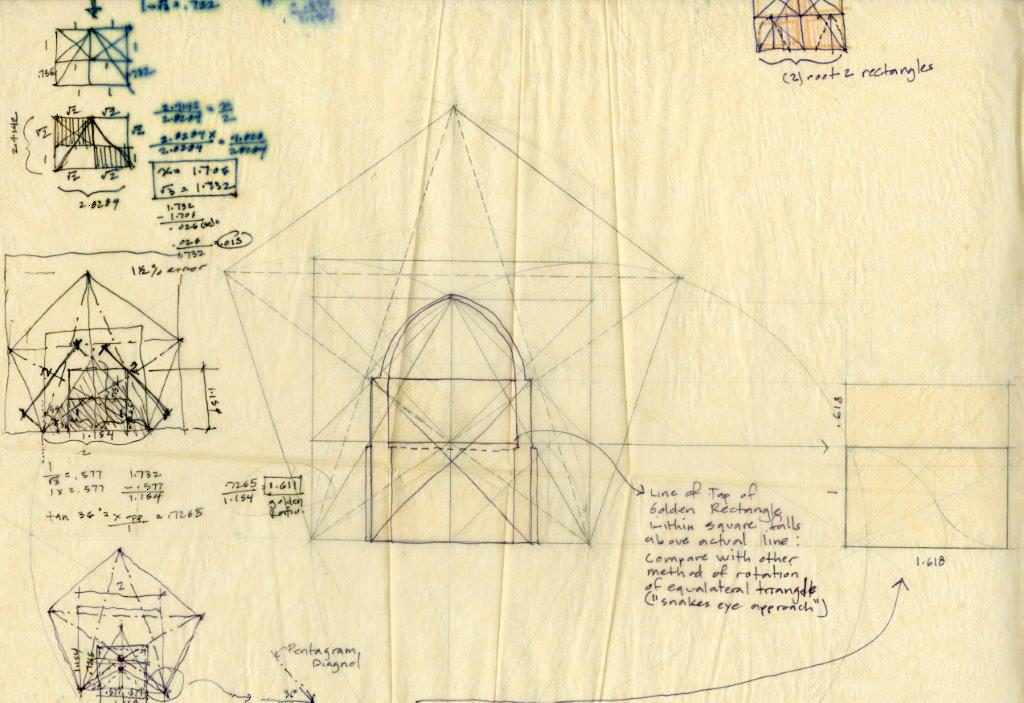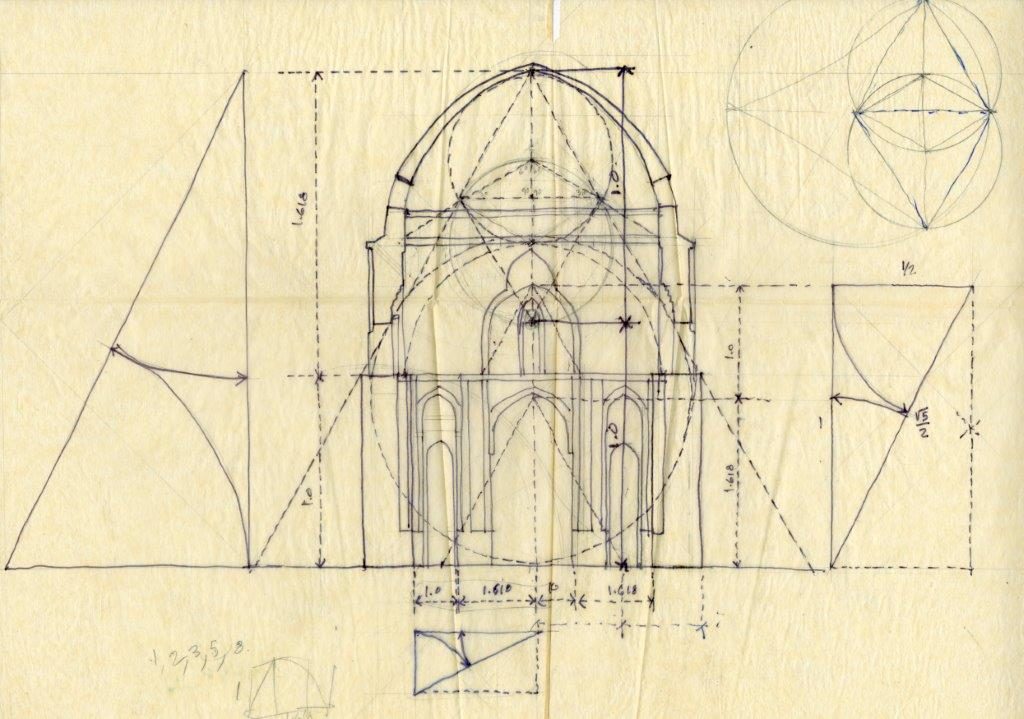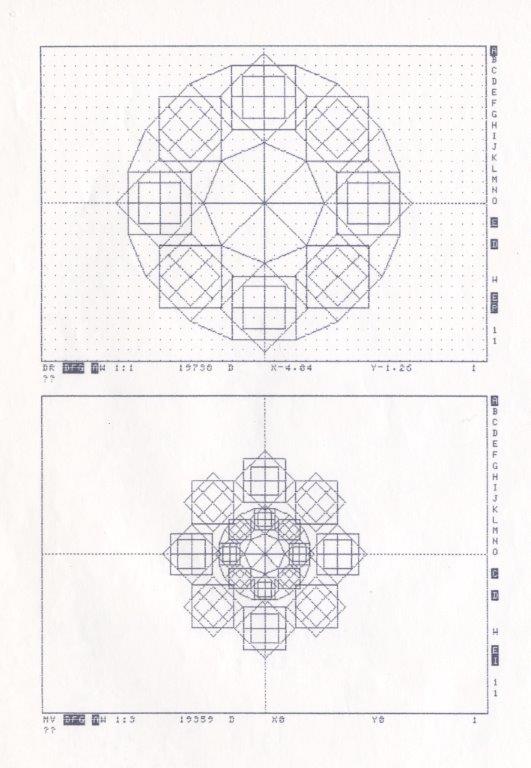Section through Dome & Geometric Analysis of
the Masjid I Jami Mosque
click on images to enlarge (except mobile devices)
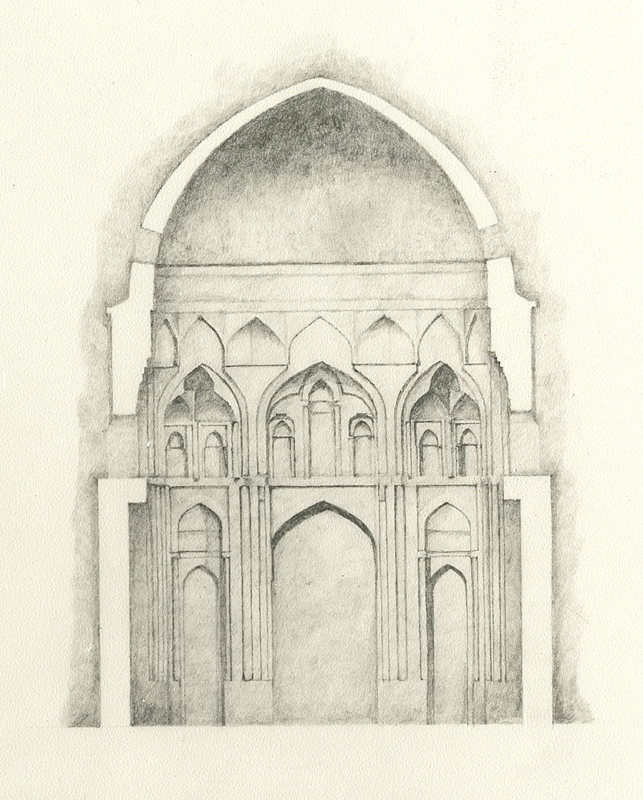
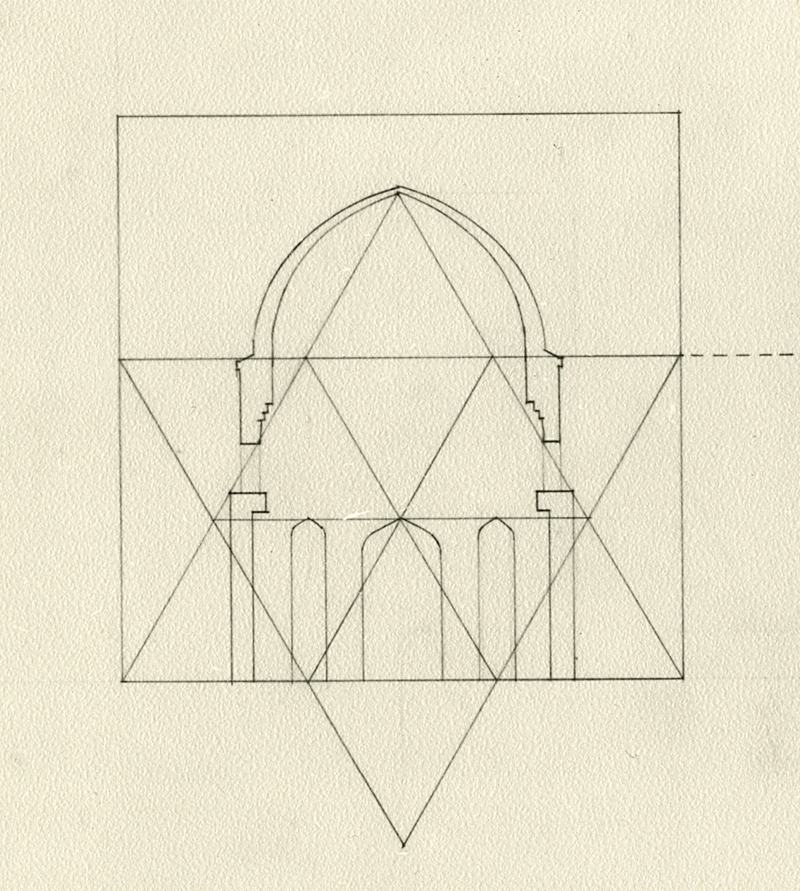
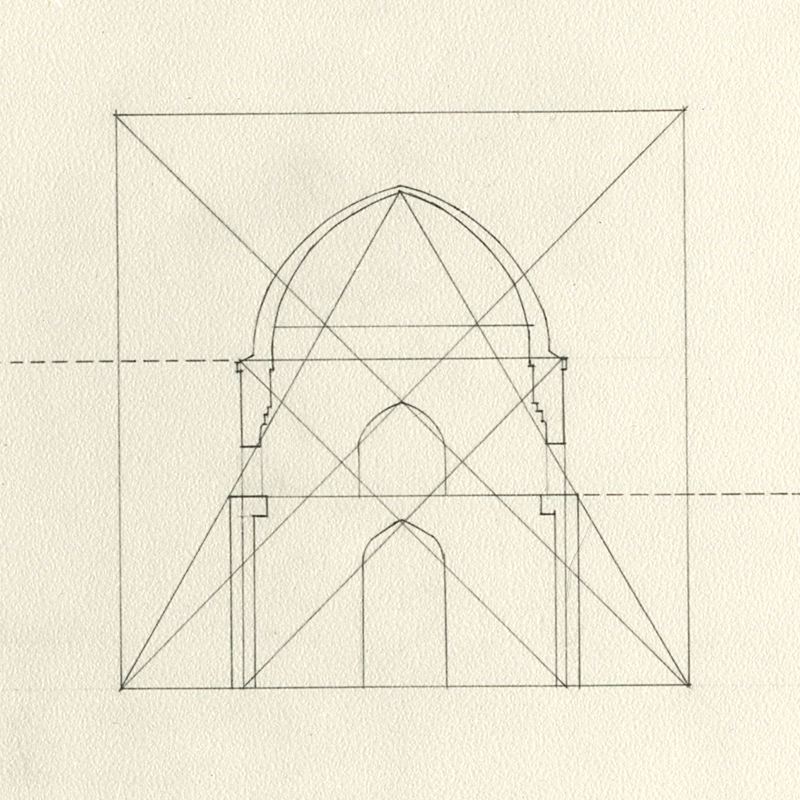
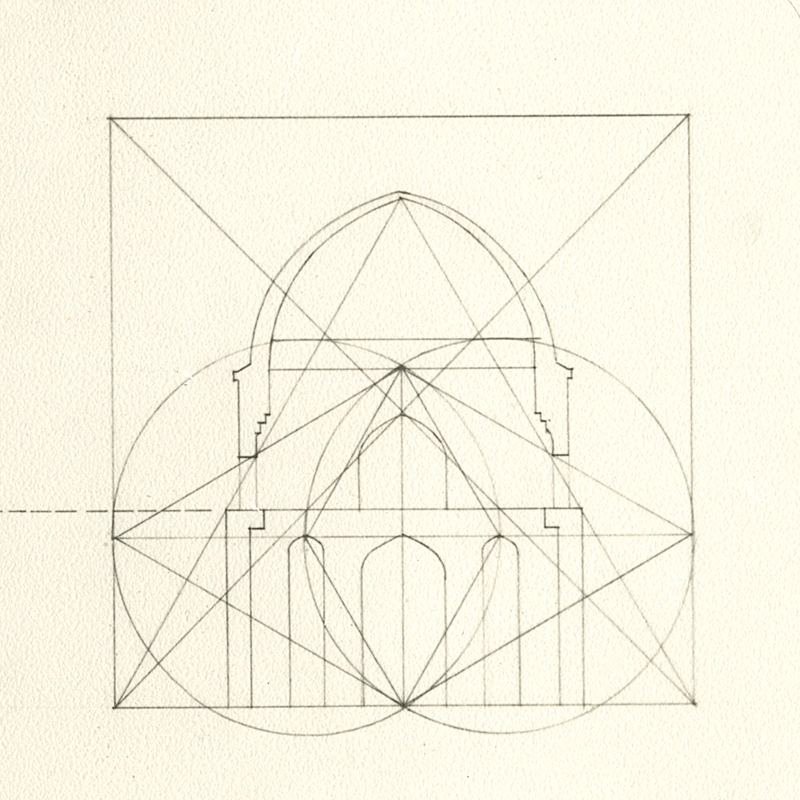
The most significant work Of Islamic Architecture that survives is the Masjid-i-Jami in Isfahan Iran. This mosque was initially built by the early Muslims who arrived in the first century after the Hijra. The Abbasids rebuilt it in 840-41 CE . The Buyids, who established the first local dynasty, enlarged it between 908-32 CE.
Above is my drawing of a cross section through the dome with three geometric sketches illustrating the proportion of parts and below are sketches studying the geometric proportional systems that delineate the proportion of it’s parts. Also, using the proportions of the different parts to each other, I prove mathematically that the golden ratio was the organizing principle.
Sketches – Understanding the Underlying Geometric Proportional Systems
click on images to enlarge
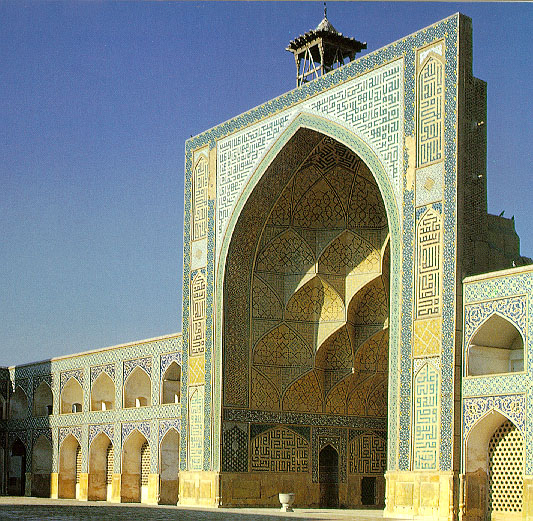
The Masjid I Jami Isfahan
Related to my Islamic studies were explorations of my own geometric ideas influenced by what I was learning about in the Islamic creative tradition. The following are studies of patterns I created using and rotating the square. They were done on a Hewlett Packard main frame computer using an early CAD software program.
